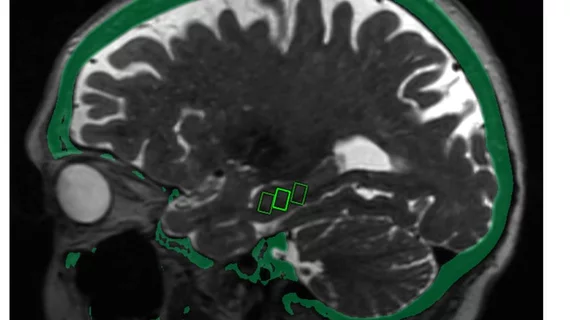MRI and mass spectrometry imaging to play key role in Alzheimer's research
Medical imaging will play a key role in new research aimed at understanding why some people who are genetically predisposed to Alzheimer’s disease do not develop the disease while others who are without genetic risk factors do.
Researchers at the Beckman Institute for Advanced Science and Technology plan to combine MRI and mass spectrometry imaging (MSI) to analyze aging brains on a more detailed biochemical level.
“There is increasing evidence that signatures at the molecular level may suggest that someone will be developing Alzheimer’s, decades before anything is functionally observable,” explained Jonathan Sweedler, a key collaborator involved in the research and a chemistry professor at the Beckman Institute.
MSI uses a tissue sample to measure the spatial distribution of molecules based on their mass. A single sample can map potentially thousands of molecules. By combining MSI results with whole-brain MRI exams, researchers are hoping to gain insight into the development of Alzheimer’s disease on a molecular level.
“If we can build connections between the information provided by MSI at the biochemical level to the macroscopic changes observable in MRI, we can potentially provide a basis to molecular-level interpretation of MRI,” Fan Lam, co-collaborator and professor of bioengineering, noted. “You image a person, and then by seeing something you can maybe infer what’s going on underneath.”
Sweedler and Lam are hoping that by the end of the five-year project they will have identified molecular signatures that are indicative of a person’s risk of developing AD. The researchers suggest that this could aid in catering preventative treatments for patients who are more likely to receive an AD diagnosis.
“To know that a specific neuron population is dying is one thing, but if we can understand chemically what’s changing, then others can design an intervention to prevent that,” Sweedler said.
The research will be funded by a $3 million grant from the National Institute on Aging of the National Institutes of Health.
To learn more, click here.

